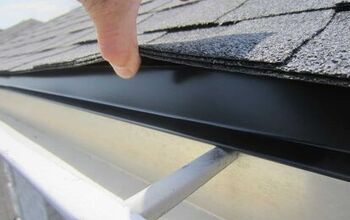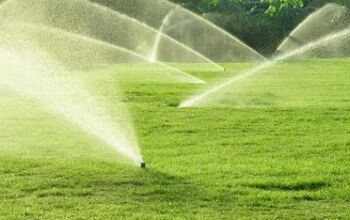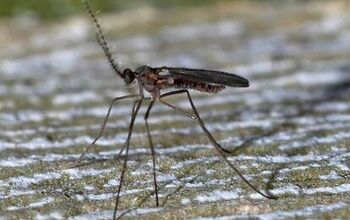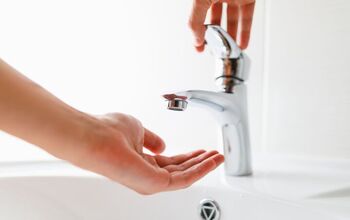Post-Fumigation Checklist

Fumigating your house is a big step, and it can be stressful before and after the process. After all, fumigants are dangerous chemicals, so many people worry about the lingering effects. That’s why we put together a post-fumigation checklist for homeowners.
Wipe your countertops and floors with warm water and mild dish soap or white vinegar as part of your post-fumigation checklist if you find residues. It’s also important to sweep dead bugs off your floor and from under your furniture, as you’ll likely find many. Wash your bedding if you didn’t put it away, and throw away any unsealed food.
You must also crack your doors and windows to let clean air in and stale air out of your home. Weird odors may linger, depending on the chemicals used, so airing out your home is necessary. Follow along as we take a deep dive into our post-fumigation checklist.
What To Do After Fumigation
Your post-fumigation checklist is based entirely on the type of fumigants your exterminators used. For example, you may not need to do much if they used a product that dissipates quickly. However, you should follow a few important steps if you’re worried about the overall fumigation process, such as:
1. Speak To The Exterminator
Following directions is the key to a successful fumigation treatment. Exterminators use dangerous chemicals that can cause serious illness and even death in some cases. Such chemicals can harm you and your pets and ruin any food that is left out.
Luckily, reputable exterminators typically provide thorough instructions to their clients. The instructions should tell you how long you must wait before you can return to your home. Don’t do anything until you read the exterminator’s instructions. It’s a good idea to ask them some questions if the instructions are not clear.
2. Air Out Your Home
Your first instinct should be to air out your home after a fumigation. Doing so will remove lingering gas and odors, which may stick around for a while even after the allotted waiting period. Dispersing fumes will not only make your home safer, but will also make it smell better and feel more comfortable.
The easiest way to do this is to crack open some doors and windows to improve air circulation. It’s also a great idea to run ceiling fans, oscillating fans, and your AC to air your home out. However, it’s worth consulting the exterminator beforehand, as they may recommend you wait to run the AC.
You will quickly notice lingering smells leave your home, and that will tell you it’s working. That said, you must be careful, or else new pests may enter your home. Ideally, you should only open windows that have screens, so you can boost airflow without letting bugs get inside.
3. Sweep Up Dead Bugs
Assuming the fumigation worked, you will likely find a lot of dead bugs throughout your house. While this can be gross, it can also make you feel more comfortable at home. However, you can’t celebrate this victory too much until you sweep up the dead bugs.
You will likely find some of the bugs out in the open on the visible surfaces in your home, such as the floors and countertops. However, many pests, like brown recluse spiders and silverfish, hide beneath furniture and in cluttered piles. In that case, you must search the crevices, gaps, and spaces beneath your furniture for dead bugs.
You may need to do some heavy lifting to find the dead bugs, but it will pay off. Dedicate a fresh trash bag to the dead bugs and seal it when you’re done. Put the bag full of dead bugs in a closed garbage container outside of your home to ensure it doesn’t attract new insects.
4. Clean Your Floors And Countertops
Hardwood, vinyl, marble, and granite floors and countertops don’t retain chemicals quite as severely as carpets and rugs do. However, they may still retain some chemical residue from the fumigation, and you must clean them.
Some people simply soak rags in warm water and scrub the surfaces, which is sometimes effective. However, you can have more luck with a mixture of warm water and distilled white vinegar or mild dish soap. A 1:1 mixture of white vinegar and warm water is more than enough to remove stubborn residues.
Some chemical fumigants don’t leave residue behind, so this step may not always be necessary, but cleaning the floors, countertops, and dishes to be safe won’t hurt, and it can help you catch up on chores.
5. Vacuum Your Rugs And Carpets
Chemical residues don’t always linger after a fumigation, but it’s still worth doing your due diligence. However, chemicals are more likely to stick to carpet and rug fibers than they are to hardwood floors and granite countertops. There’s also a chance that you missed some of the dead bugs in your carpet, so it’s worth vacuuming.
It won’t take too long, and vacuuming can help you start on a clean slate after fumigating your house. That alone is worth the extra 20 to 30 minutes it takes to vacuum.
6. Remove Tainted Food
Removing tainted food should be near the top of your post-fumigation cleaning checklist. Of course, you’re supposed to get rid of perishable and unsealed food before fumigating your house. However, some people don’t have time to do this before fumigating their homes, especially in emergencies.
Carefully inspect your kitchen for any remaining food and dispose of it as needed. That includes unsealed dog, cat, and fish food, all of which can become tainted.
7. Wash Your Bedding
Some people don’t put their bedding away before fumigating their home. That’s especially true for homeowners who must fumigate their house on short notice. While it’s better to put your bedding away before fumigating, you should at least wash it afterwards if you didn’t.
Wash your sheets, comforter, blankets, and pillowcases like you normally do. This may not be necessary if the exterminators used Vikane, but some fumigants linger on surfaces. Even if your bedding isn’t tainted, it may still carry a strange odor.
Washing your bedding can remove the odor and give you much-needed peace of mind. It’s also a good idea to wash your bedding if you frequently found pests in it before the exterminators fumigated your house.
How Soon Can I Sleep In My House After Fumigation?
You must typically wait at least 24 hours before you can sleep in your house after a fumigation. In some cases, you must wait up to 3 days before you can safely sleep in your house. That alone is a big reason why some people put off a fumigation, as it can be quite inconvenient.
Not only do you have to prepare for fumigation, but you must also make sleeping arrangements for a few days. That is ultimately the biggest hidden cost of fumigation, as many people must book hotel rooms. It’s important to speak to the exterminator service and ask about the timeline to see how long you must stay away.
The timeline typically varies based on the type of chemicals used to fumigate your house. For example, the longest wait time typically comes from drywood termite fumigation. It’s never worth returning home before the recommended date, because chemical fumigation residue is dangerous to ingest.
Do You Only Need To Fumigate Your House Once?
Unfortunately, fumigation isn’t necessarily a one-time process, as pest infestations can occur for many reasons. For example, you may fumigate your house, then accidentally introduce termites to your home a year later. In that case, you must fumigate your house again, as the effects of the first fumigation will have long worn off.
The same is true for any type of pest, whether it be termites and bed bugs or cockroaches and rats. Unfortunately, you can inadvertently introduce pests to your home through secondhand furniture and bugs clinging to your clothes while you’re outside. That’s why it’s important to be cautious and hire a pest control service to regularly treat your home for pests.
Summing It Up
Talk to your exterminator and follow the instructions before returning to your home after a fumigation. Your post-fumigation checklist should include opening the doors and windows and sweeping up the dead bugs. It’s also important to wash your bedding, vacuum rugs and carpets, and clean the surfaces in your home. This will remove chemical residue if the fumigant used didn’t completely dissipate.
Related Guides:

Nick Durante is a professional writer with a primary focus on home improvement. When he is not writing about home improvement or taking on projects around the house, he likes to read and create art. He is always looking towards the newest trends in home improvement.
More by Nick Durante














![10 Best Zero Turn Mowers – [2022 Reviews & Ultimate Buyer's Guide]](https://cdn-fastly.upgradedhome.com/media/2023/07/31/9070522/10-best-zero-turn-mowers-2022-reviews-ultimate-buyer-s-guide.jpg?size=350x220)












